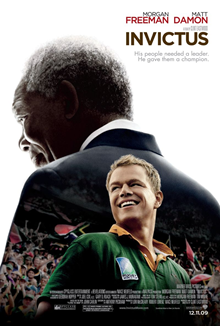Mandala is a geometric configuration of symbols used in various spiritual traditions.
Contents
Mandala may also refer to:
Mandala is a geometric configuration of symbols used in various spiritual traditions.
Mandala may also refer to:
ABC are the first three letters of the Latin script.
SMS is short message service, a form of text-messaging communication based on phones.
A patriot is a person with the quality of patriotism.
Eden may refer to:
ID or its variants may refer to:

Jeremy David Hounsell Dammers GCOT is a British musician who was a founder, keyboard player and primary songwriter of the Coventry-based ska band the Specials and later the Spatial AKA Orchestra. Through his foundation of the record label Two Tone, his work blending political lyrics and punk with Jamaican music, and his incorporation of 1960s retro clothing, Dammers is a pivotal figure of the ska revival. He has also been acknowledged in his work for racial unity.
A kiss is a touch with the lips, usually to express love or affection, or as part of a greeting.
The Rock most often refers to:
Seventeen or 17 may refer to:
3 is a number, numeral, and glyph.
The Hill most frequently refers to Capitol Hill, Washington, D.C., and entities named after it, including:
Banana is the common name for flowering plants of the genus Musa and for the fruit they produce.
New Order may refer to:

The Nelson Mandela 70th Birthday Tribute was a popular-music concert staged on 11 June 1988 at Wembley Stadium, London, and broadcast to 67 countries and an audience of 600 million. Marking the forthcoming 70th birthday of the imprisoned anti-apartheid revolutionary Nelson Mandela, the concert was also referred to as Freedomfest, Free Nelson Mandela Concert and Mandela Day. In the United States, the Fox television network heavily censored the political aspects of the concert. The concert is considered a notable example of anti-apartheid music.
Mandal, also spelled Mondal, is an honorific title that was used for local chieftains in present-day Bangladesh, India and Nepal. The title was usually hereditary and so, in modern times, the term is a common surname for both males and females.
Nelson Mandela (1918−2013) was an anti-apartheid activist and former president of South Africa.
Entertainment is an event, performance, or activity designed to give pleasure to an audience.

Invictus is a 2009 biographical sports film directed by Clint Eastwood and starring Morgan Freeman and Matt Damon, making it the third collaboration between Eastwood and Freeman after Unforgiven (1992) and Million Dollar Baby (2004). The story is based on the 2008 John Carlin book Playing the Enemy: Nelson Mandela and the Game That Made a Nation about the events in South Africa before and during the 1995 Rugby World Cup. The Springboks were not expected to perform well, the team having only recently returned to high-level international competition following the dismantling of apartheid—the country was hosting the World Cup, thus earning an automatic entry. Freeman portrays South African President Nelson Mandela while Damon played Francois Pienaar, the captain of the Springboks, the South Africa rugby union team.

Nepal Mandala is the ancient geographic division of Nepal into different regions. It was characterized by three major divisions: “Purwanchal”, “Madhyamanchal”, and “Pashchimanchal”. These divisions were further subdivided into smaller areas known as “Mandals.” The concept of Nepal Mandal has historical significance, reflecting the administrative and cultural organization of the region in earlier times. It is marked by cultural, religious and political boundaries that lies in present-day central Nepal. It consists of the Kathmandu Valley and surrounding areas. The rule of the indigenous Newars in Nepal Mandala ended with its conquest by the Gorkha Kingdom and the rise of the Shah dynasty in 1768.